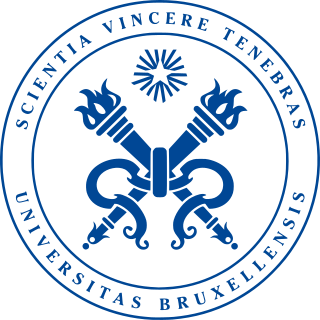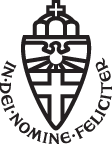
Utrecht University is a public research university in Utrecht, Netherlands. Established 26 March 1636, it is one of the oldest universities in the Netherlands. In 2021, it had an enrollment of 36,390 students, and employed 8,276 faculty members and staff. More than 400 PhD degrees were awarded and 8,500 scientific articles were published. The 2021 budget of the university was €1.026 billion.

Leiden University is a public research university in Leiden, Netherlands. It was founded as a Protestant university in 1575 by William, Prince of Orange, as a reward to the city of Leiden for its defence against Spanish attacks during the Eighty Years' War. As the oldest institution of higher education in the Netherlands, it enjoys a solid reputation across Europe and the world.

The Université libre de Bruxelles is a French-speaking research university in Brussels, Belgium. ULB is one of the two institutions tracing their origins to the Free University of Brussels, founded in 1834 by the lawyer and liberal politician Pierre-Théodore Verhaegen.
Erasmus (1466–1536) was a Dutch humanist scholar.
The Thomas Henry Pentland Molson Prize for the Arts is awarded by the Canada Council for the Arts. Two prizes are awarded annually to distinguished individuals. One prize is awarded in the arts, one in the social sciences and humanities. The prizes are $50,000 each, and intended to encourage continuing contribution to the cultural and intellectual heritage of Canada.
Maastricht University is a public research university in Maastricht, Netherlands. Founded in 1976, it is the second youngest of the thirteen Dutch universities.

The University of Amsterdam is a public research university located in Amsterdam, Netherlands. Established in 1632 by municipal authorities and later renamed for the city of Amsterdam, the University of Amsterdam is the third-oldest university in the Netherlands, and one of the most prestigious academic institutions of the country, and in the world.

Robertus Henricus "Robbert" Dijkgraaf FRSE is a Dutch theoretical physicist, mathematician and string theorist, and the current Minister of Education, Culture and Science in the Netherlands. From July 2012 until his inauguration as minister in January 2022, he had been the director and Leon Levy professor at the Institute for Advanced Study in Princeton, New Jersey, and a tenured professor at the University of Amsterdam.

Radboud University (abbreviated as RU, Dutch: Radboud Universiteit, formerly Katholieke Universiteit Nijmegen) is a public research university located in Nijmegen, the Netherlands. The university bears the name of Saint Radboud, a 9th century Dutch bishop who was known for his intellect and support of the underprivileged.

Erasmus University Rotterdam is a public research university located in Rotterdam, Netherlands. The university is named after Desiderius Erasmus Roterodamus, a 15th-century humanist and theologian.

The Erasmus Prize is an annual prize awarded by the board of the Praemium Erasmianum Foundation to individuals or institutions that have made exceptional contributions to culture, society, or social science in Europe and the rest of the world. It is one of Europe's most distinguished recognitions. The prize is named after Desiderius Erasmus, the Dutch Renaissance humanist.

Lisa Anne Jardine was a British historian of the early modern period.

Alexander King was a British chemist and pioneer of the sustainable development movement who co-founded the Club of Rome in 1968 with the Italian industrialist Aurelio Peccei. The Club was one of the first institutions to voice concerns about the impact on the environment of unprecedented economic growth in the 20th century. "Peccei and King were lonely prophets at a time of overwhelming optimism," who did much to push environmental issues on to the political agenda. At the time of the Club's founding, King was Director-General for Scientific Affairs at the Paris-based Organisation for Economic Co-operation and Development (OECD).

Paul Delouvrier was a French administrator and economist. He was awarded the Erasmus Prize in 1985, a year when the theme for the award was Urban Development.
The Irish Research Council was launched in 2012 and operates under the aegis of the Department of Education. The core function of the organisation is to support research across a number of disciplines and career stages. The council also has a role in supporting research with a "societal focus", and has established partnerships across government and civic society to this end.
Uğur Ümit Üngör is a Dutch–Turkish academic, historian, sociologist, and professor of Genocide studies, specializing as a scholar and researcher of Holocaust studies and studies on mass violence. He served as Professor of History at the Utrecht University and Professor of Sociology at the NIOD Institute for War, Holocaust and Genocide Studies.

Frie Leysen was a Belgian festival director. She was director of the art centre deSingel from 1980 until 1991. In 1994, she co-founded the Kunstenfestivaldesarts in Brussels.

Margareta Niculescu was a Romanian artist, puppeteer, director, teacher and theater director. She contributed to the renewal, since 1950s, of the art of puppetry in Europe and the rest of the world. She was director of Tandarica Theatre of Bucharest. From 2000 until 2004 she was president of the International Puppetry Association in Charleville-Mezieres, in Ardennes, and co-founded with Jacques Felix, the National School of Puppetry Arts in that city. In 1978 she won the Erasmus Prize together with other noted puppeteers Yves Joly, Peter Schumann and the Napoli brothers.














